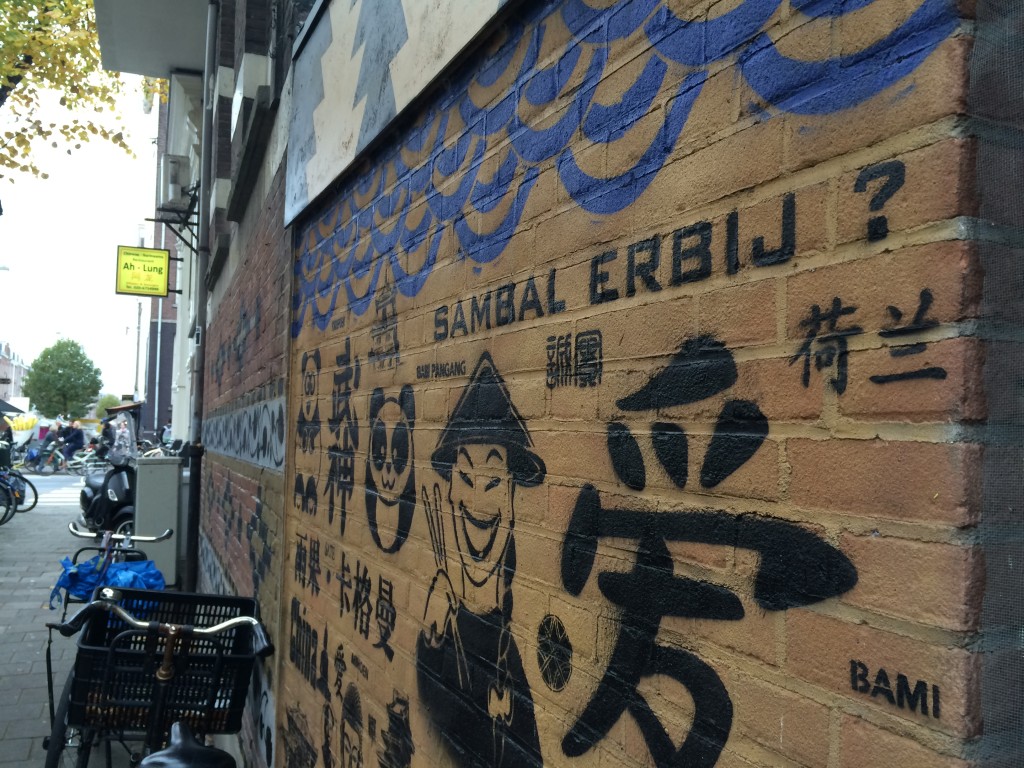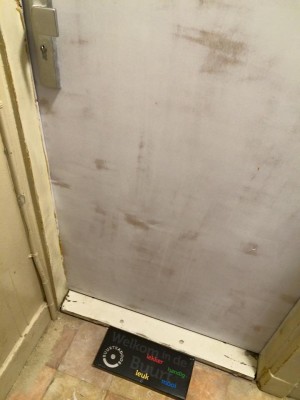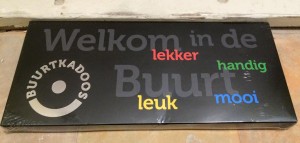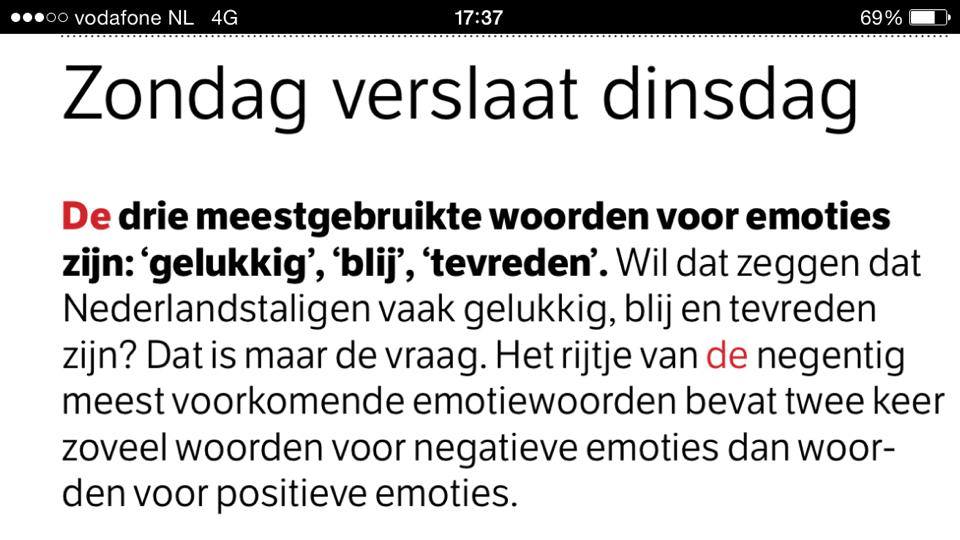“Bonnetje erbij?”, “tasje erbij?” or “koekje erbij?” So far you may have gathered from context what is asked, but what does ‘erbij’ really mean? ‘Erbij’ is an adverb that means something like ‘(to go) with it/that’. It becomes clearer when we write the full intended sentence, e.g. “Wilt u er een bonnetje bij?” – “Would you like a receipt (with that)?”
The object that is referred to by ‘er’ is derived from context. The use of ‘er’ (in a way a temporary placeholder for an object or location) can be difficult to master. For example the short version “Bonnetje erbij?” is derived from the also allowed version “Wilt u een bonnetje erbij?”
Chinese take-away restaurants in the Netherlands are known for always asking the same question when handing over the order: “Sambal erbij?” – “Would you like sambal (hot sauce) (to go) with that?” It’s often jokingly imitated (“Sambal bij??”), and restaurant Ah-Lung is ‘owning it’ at the corner of Van Woustraat and Hemonylaan in Amsterdam.

Photo taken on Hemonylaan – Amsterdam
For comments please see the original Facebook post.




